How is filial piety changing in Singapore? Here’s the younger generation’s take on it
CNA Insider explores whether filial norms, such as giving parents an allowance and living with them in their retirement, still carry much weight with the younger generation, and the reasons why.
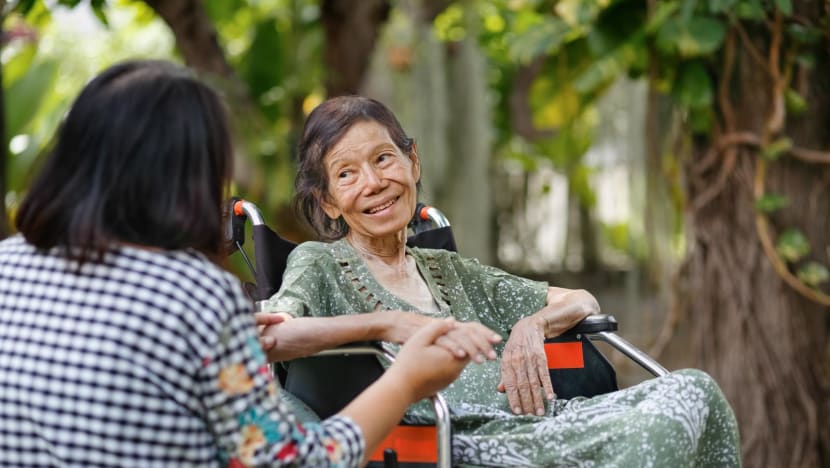
Will the younger generation look after their parents in the same way their grandparents were cared for? (Photo: iStock/Toa55)
SINGAPORE: Caught between her parents’ example and her own life pursuits, Xin Yi finds herself in a dissonant state.
“My parents are very ‘xiao shun,’” said the 23-year-old, referring to the Chinese phrase for filial piety. “My parents do hire a maid, but they still care for my grandparents very closely.
“They won’t put their parents in an old folks’ home or anything, … and I do feel pressured to (do the same for them).”
But her own inclinations are different. Having seen the physical care her grandparents require, including their toilet needs, the only child feels more comfortable outsourcing care of her parents in future.
This is why the diploma holder left the workforce and is now at a local university.
“I need to further my studies to earn more to pay for all their future needs if I want to have a life,” said Xin Yi, who declined to share her surname.
“If their health deteriorates, I’ll need to pay for them to be in a nursing home, which is so expensive nowadays.”
While her parents have not communicated their expectations, Tessa’s parents have — and there is some distance between what they want and what their four children want to give.
“My mum would say, ‘You need to visit several times a week … to show that you care,’” said Tessa, 27, who also declined to give her full name.
Her elder sister, for example, gets asked regularly why she does not visit “enough”.
“There are already so many expectations in a traditional household that you want out of it,” said Tessa, who plans to visit once every fortnight after she moves to her Build-To-Order flat with her fiancé.
Recent years have seen a growing debate on filial piety norms. One CNA commentary in May, which questioned whether adult children should still be expected to give their parents an allowance, sparked online discourse that echoed similar sentiments.
With norms that seem to separate filial children from unfilial ones, such discourse might suggest that younger generations are seeking to shirk their filial duties.
For Xin Yi, Tessa and other young people CNA Insider spoke to, however, it is not about abandoning their duties but about wanting to show their filial piety in other ways.
THE ALLOWANCE QUESTION
Tessa heard about her parents’ expectations from her elder siblings when she started working full-time — that “we need to pay them back for our university fees and give them an allowance”.
So she gives her parents the 10 per cent cut they expect, although that is not the way she wants it to be.

“I don’t think I’d fix the percentage,” said Tessa, who also would like to not give them money if there are times when she feels she cannot afford it, “as long as (they) are well enough on their own”.
“If I get a promotion, I’ll give you more. If I can afford more or a bonus comes in, I can give you more. Sure, why not?” she added.
For 23-year-old Sarah Ridzwan, who works in an advertising agency, giving her parents an allowance must be context-dependent.
“My parents are separated. My mum doesn’t ask for money from me, but she nicely insists that I give my dad money,” she said. “I still don’t because I need the money, and … he didn’t do much in raising me.
“Assuming I’m a little more financially stable, I’d give my mum money. But not right now.
I need that money for myself. I want to earn enough (so) that I don’t have to ration my money so tightly, and build up my savings before I give her an allowance.”
CARING FOR AGED PARENTS
Living with or close to aged parents to care for them may also not be a high priority for some millennials and Gen Zers, such as Nanyang Technological University (NTU) undergraduate Ryan Aw, who wants to work overseas.
“That means leaving my parents behind,” noted the 22-year-old, who has a younger brother and whose parents are in their 60s and “still independent”. But he is not sure what he will do in their old age.
“I’d want to see … what’s most doable and do that,” he said. “My respect and appreciation for them are what define my filial piety — not the physical proximity.”
While his parents are not expecting to live with their sons, Tessa’s parents want her elder brother, who is married, to house and care for them someday.
“It could be quite difficult. He mentioned to us quite a bit that he isn’t sure what to expect,” she said. “He wants to live separately, but I’m not sure whether my parents will be able to accept that.”
Tessa herself is against her parents living in an old folks’ home. Thinking back on her visits as part of her Community Involvement Programme at school, she said she felt “quite sad” for the residents.
But all four siblings hesitate to house their parents. “I’d rather they live alone, and I visit them,” Tessa said.
Their parents are not unique in this sense. Many older adults may struggle with loneliness as they age. “My mum wants to stay with me and my brother until she passes away,” shared Sarah. “She’s very clingy in that way.”
Sarah, however, does not see herself taking on this responsibility when her mother is retired.
If her elder brother had not decided to be the one who would house and care for their mother in future, Sarah envisages having to put her in a retirement home. “(But) I’d pay her a visit every week and buy her favourite foods,” she said.
RETHINKING THE TYPE OF SUPPORT
Sarah is another young Singaporean who intends to work abroad. And she understands that her expressions of filial piety would have to adapt accordingly.
“If I can afford a plane ticket, I’d visit my mum every few months,” Sarah said. “If I’m broke, I’ll just video-call her every month.”

It “isn’t necessarily a bad thing”, said Aw, for young adults to be less active in their parents’ lives than before.
“I believe that parents want their kids to succeed, and there’s a certain level of letting go that both sides have to do to achieve this,” he reasoned.
University freshman Lex Lee, 21, figured that the kind of support parents of young adults would need may not look like what was expected in the past.
He cited “taking (his parents) out to events”, such as a “nice dinner”, as something he would do to demonstrate filial piety.

“It’s less of maths, like 10 per cent of my paycheck, and more like ‘I’m using my resources to spend time with you,’” he said. “I think that’s what they’d value more.”
Since his parents are “fiercely independent”, he expects them to be open to “solutions where they don’t feel like they’re impeding us” in their old age. “That sense of dignity is very important to them,” he remarked.
I think your parents will definitely let you know what matters to them. … For me, it’s about supporting them in ways that matter.”
He may not be far off the mark. According to a paper exploring the “filial piety paradox”, authored by NTU assistant professor of sociology Shannon Ang, receiving conventional support from children may not help older adults with their well-being.
“Back then, filial piety was bound up in the idea of children supporting their parents (financially). And you wouldn’t hear things like, ‘My children don’t give me emotional advice’ or ‘They don’t hang out with me,’” said the sociologist.
But he told CNA Insider that “perceived social support, which is how well older people feel supported, consistently predicts better health outcomes”.
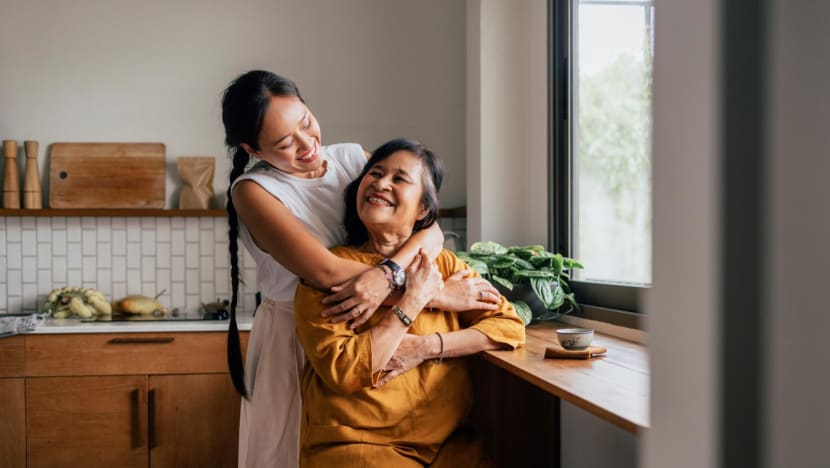
WHY IS FILIAL PIETY CHANGING?
According to Ang, “the dynamics of life in Singapore have changed substantially” owing to a couple of factors.
Singapore has seen the average size of its households shrink from 4.87 members in 1980 to 3.09 last year. Department of Statistics data also show that the median monthly income from work among resident households increased from S$4,000 in 2000 to S$8,615 last year.
With fewer children, “people will hopefully have more that they can save for themselves”, said Bussarawan (Puk) Teerawichitchainan of the National University of Singapore’s department of sociology and anthropology.
“They’ve benefited from Singapore’s economic growth over the last few decades. So those in the middle class tend to be relatively self-sufficient.”
Among the Gen X parents planning their finances with a view to retiring independently is Ian Y H Tan, whose two children are just a few years younger than Aw.
“I intend to be self-sufficient till the day I die. So I’m staying healthy, I’m keeping busy,” said the 47-year-old, who recently joined NTU as a lecturer.
“Even though I’d give an allowance to my parents if they were alive, I don’t expect my children to give me an allowance.”
He is not the only parent holding this view. Dora Yip, another 47-year-old parent of two Gen Z children, said: “I’m trying to make sure I’m financially able to afford whatever kind of care I need when I’m aged.”
She would even pay for institutional care herself, although she hopes to avoid the need for it.
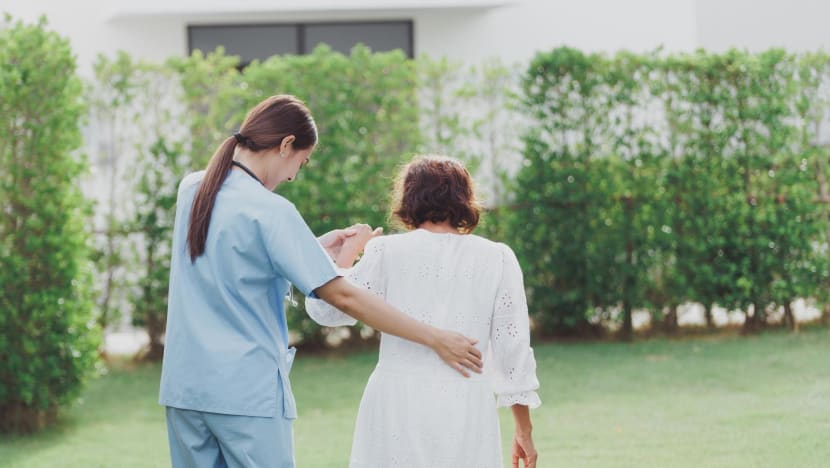
The growing number of middle-class parents such as Tan and Yip is not the only reason, however, for the younger generations’ changing attitudes towards filial piety.
International mobility has increased in parallel with Singapore’s economic growth. According to data from the United Nations, Singapore’s stock of emigrants increased from 156,000 in 1990 to 348,000 in 2020.
Whereas in the past, “not living with your elderly parents was almost akin to abandonment”, nowadays three-generation families “are harder to come by because children are a lot more mobile,” said Singapore Management University professor of sociology (practice) Paulin Straughan.
Last year, 36.2 per cent of Singaporean residents aged 25 and over were university graduates, up from 4.5 per cent in 1990. This also explains why “people are less likely to accept things as the way they are”, Ang said.
The norm in Singapore that says “we have to live with our parents” was not a result of filial piety to begin with, he said.
“It’s primarily because of policy — that single people cannot buy flats until they’re 35,” he cited. “So, because we need to live with family, suddenly it became an expectation that living with family is an expression of filial piety.”
That expectation never truly became the norm, however, when it came to the three-generation family, Straughan said. “Our houses are too small. Look at the HDB flats: two bedrooms, three bedrooms. How do we fit three generations?”

Demographics aside, there have also been changes in the Maintenance of Parents Act over the years.
Just last month, the law was amended so that parents who have abused, abandoned or neglected their children may not be able to seek monetary support from them.
“Filial piety is, in theory, unconditional. But now the law is shifting, and there are conditions being attached,” Ang noted.
WHERE ARE THE CHANGES TAKING US?
A more significant shift, as Ang saw it, began in 2015, when one in eight Singaporeans was aged 65 or over and the Action Plan for Successful Ageing was launched.
Successful ageing here entails “a shift to individual responsibility” on the part of older people, he said, so that there is less reliance “on the incumbent generation to look after the old”.
Aw can count his parents as an example of this. “(They) still cycle regularly from Sengkang to Boon Lay and back,” he remarked. “At their big age!”
Official data shows that the average number of years a person in Singapore can expect to live in full health increased from 72.8 in 2010 to 74.5 in 2019.
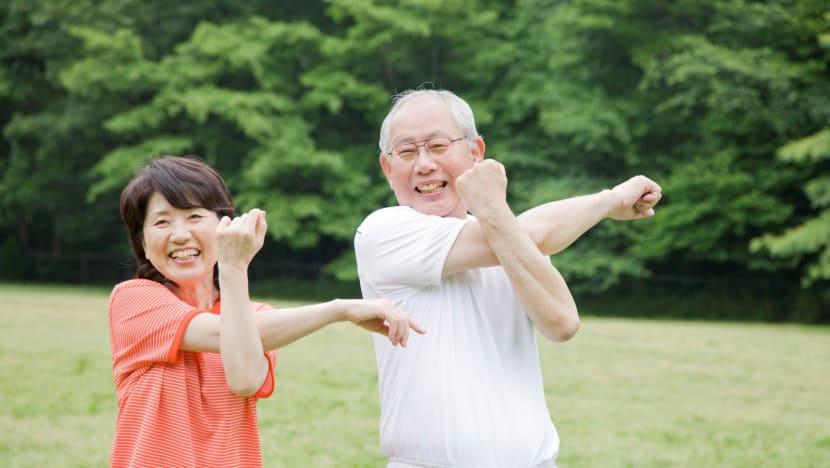
“As the new older adults enter retirement, they’re more prepared, so they don’t need so much of the functional support we used to see,” said Straughan.
Ang sounded a note of caution, however, about the successful ageing model — “because how many people can actually reach that ideal?”
“What do we do with the people who don’t fit that model? Do we stigmatise them? When you put forth an ideal in a success-driven society like Singapore, what’s the opposite of successful ageing in the public consciousness?” he questioned.
The people who coined the term ‘successful ageing’ said that the opposite, or the default, is ‘normal ageing’. … But in Singapore, the opposite of successful is failure, right? So if you don’t succeed, there’s no space for normality.”
The general trends across Singapore are also not entirely representative, Straughan said. “There’ll always be the poor, and there’ll always be a distance between those who have and those who have not.”
For lower wage earners and older adults with health problems, the functional and tangible support their children give them remains a necessity.
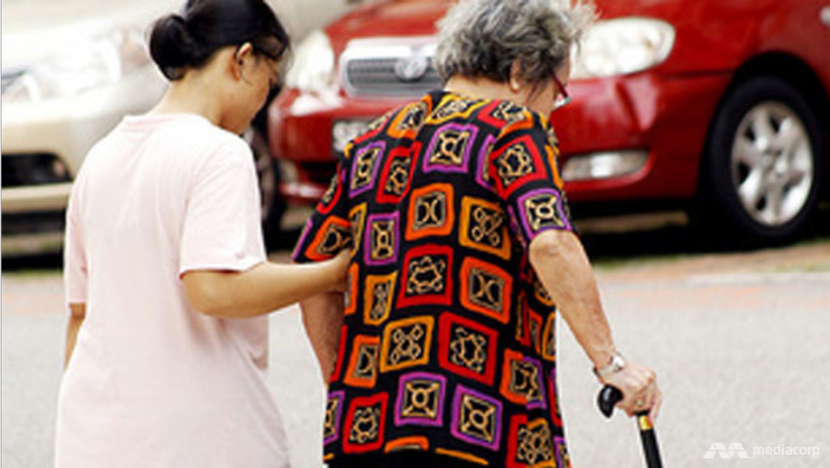
It is an issue that worries Xin Yi. Her mother is a lower wage earner and so was her father — whose health has started to decline — until he retired.
“I want to have my own life and my own space,” she said. “But financially, it makes sense to live with them.”
Only-child families like hers are on the rise: 20 per cent of resident ever-married women (aged 40 to 49) had only one child in 2012, and that figure was 24.4 per cent last year.
With geographical mobility, “that child may be somewhere else in the world pursuing a career”, noted Puk. While family ties “may become a little weaker”, they should “still be there”.
“But there are always people who fall through the cracks, who’d be socially isolated, who are unprepared,” she said.
With the proportion of people aged 65 and over set to increase to one in four by 2030, the shifts in the understanding of filial piety take on added significance.
“For the longest time, filial piety was a strategy we used to bear the burden of caring for the old,” Ang said. “But now, older people don’t have as many children, and health costs a lot more.”
Given Singapore’s current demographic trends, Straughn suggested that “unlocking community resources (the strong, positive social ties we have with others) makes the most sense”.
“Now that people may not live with their elderly parents, or even if they live together but the children are at work … if something happens to an elderly (parent) who’s home alone, the first person to reach them is the neighbour.”
The ageing issue apart, Ang foresees a change in parent-child dynamics. “I think we’ll move from a hierarchical type of parent-child relationship to a bit more of an egalitarian one,” he said.
There are “no set expectations” on Yip’s part. “Filial piety isn’t a transaction,” she said. “I just want us to be an active part of each other’s lives.”
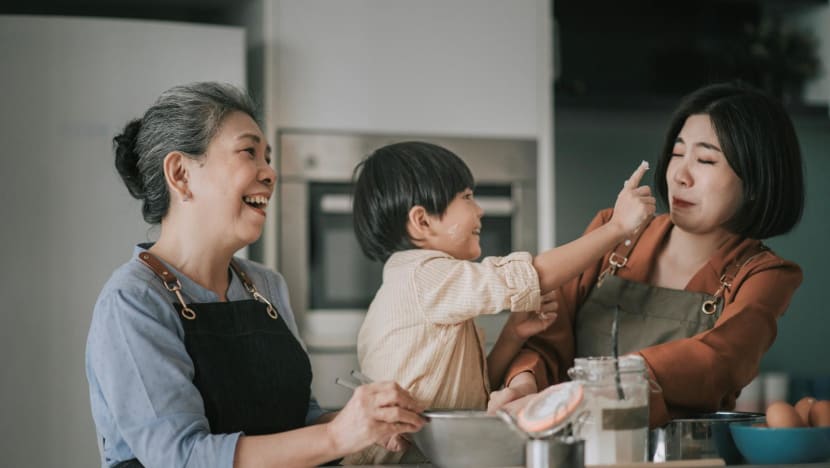
Similarly, what is important to Tan is that his relationship with his children deepens.
Is the filial piety of yore still relevant, then? Are children more filial if they give their parents an allowance and keep them out of nursing homes? Not seemingly so, for the Gen Zers interviewed.
“The traditional understanding of filial piety doesn’t apply to our world any more,” Aw said.



















